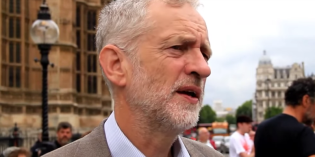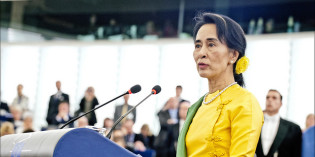Informing and engaging citizens

Towards a critical data science – the complicated relationship between data and the democratic project
What is driving the rise in data-driven techniques used by politicians and political campaigns to connect with the concerns and needs of citizens? Will a data-driven approach to political campaign messaging disrupt the “echo chamber” effect that is perceived to emerge within online spaces? Jo Bates finds the role of data science in the development of […]

Political habits learned in home country are determinants of EU expats’ registration in European elections
The European Union has seen, over recent decades, the creation of political structures spanning the continent. It has coincided with increased citizen mobility, with millions of Europeans opting to live, work and stay in other EU member states. Here, Yves Dejaeghere, Luana Russo, and Louise Nikolic show that political habits that have been acquired in […]

Unless they can reinvent themselves for the populist age, the (political) party may well be over
In Spain and across much of the rest of Europe, non-mainstream – and often populist – political parties of different stripes are prospering as mainstream parties struggle to find the right language to justify their existence. Nick Pearce argues that as voters desert mainstream parties, it is social democratic parties that face the biggest challenge […]

It is far from clear whether the Labour Party is ready for the forthcoming EU referendum
Last time the UK undertook a referendum on our membership of the European Union following a renegotiation of the terms of membership, it was Labour in office. This time, the process will be overseen by a Conservative government, with Labour in opposition. Jeremy Corbyn, Labour’s first Eurosceptic leader in a generation, has pledged to support […]

Ideology is in the eye of the beholder: How British party supporters see themselves, their parties, and their rivals
Although the number of voters prepared to declare an affinity to a political party has shrunk over the last halfcentury, they still represent a substantial slice of the electorate. Here, Tim Bale, Paul Webb and Monica Poletti show that the gap between where strong supporters of Britain’s top six political parties place themselves ideologically and where they […]

The upsizing of public deliberation has downsized citizen expectations
Citizens are increasingly being asked to weigh in on decision-making processes, creating a strong sense they are being consulted over big decisions. But Caroline W. Lee argues that although public deliberation has indeed shifted political culture in meaningful ways, its long-term effects are more demobilising than liberating. She writes that if empowerment is just about […]

Widespread democratic change could trigger meaningful action on climate change
Meaningful multilateral action on climate change has been hard to come by, with objections from several countries – most notably the United States – often derailing attempts to bring carbon emissions down and thus global temperatures at a more manageable level. Here, Andrea Westall argues that democratic innovation and change could create a political context in which […]

Answers to the Western democratic malaise may come from unexpected places
Tamas Wells writes that most of the solutions proposed to the current malaise of liberal democracy are drawn from the Western canon of political thought and questions whether the very nature of ‘established’ democracies challenges their ability to innovate. In this light, he suggests there could be lessons for the West from places like Myanmar […]

The rising tide of protectionism is hampering global philanthropy
Cross-border philanthropy is increasingly burdened in many parts of the world. In addition to existing constraints in dozens of countries, more than 30 countries have proposed or enacted such restrictions since 2012. Douglas Rutzen argues that this represents the latest phase in an ‘associational counter-revolution’. Similar Posts



 Democratic Audit's core funding is provided by the Joseph Rowntree Charitable Trust. Additional funding is provided by the London School of Economics.
Democratic Audit's core funding is provided by the Joseph Rowntree Charitable Trust. Additional funding is provided by the London School of Economics.